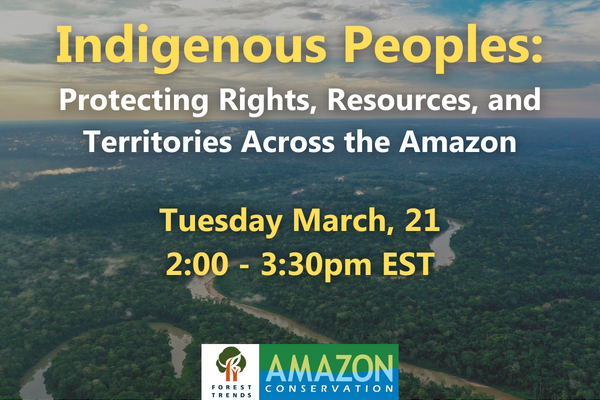-

John Beavers
Executive Director
Amazon Conservation
-

Gilberto Mincaye Nenquimo
President
Waorani Nationality of Ecuador (WAME)
Ecuador
-
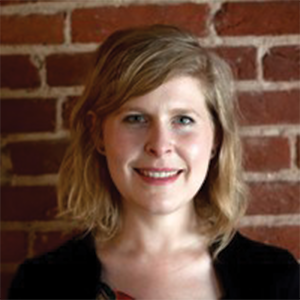
Meryl Cohen
Programs Director
Amazon Conservation
-

Alfredo Vargas Pio
President
The Federación Nativa del Río Madre de Dios y Afluentes (FENAMAD)
Peru
-
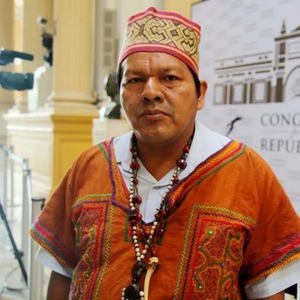
Julio Cusirichi Palacios
President
The Federación Nativa del Río Madre de Dios y Afluentes (FENAMAD)
Peru
-
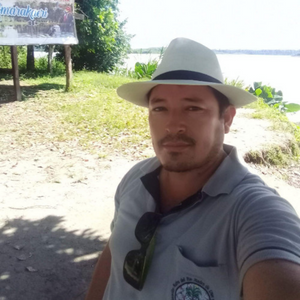
Pepe Torres Mayorga
Coordinator of Community Monitoring and Oversight Program (Veeduría)
FENAMAD
-
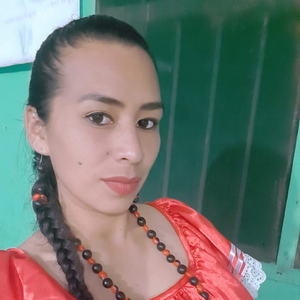
Kareen Cartagena
Monitoring Technician
Consejo Indígena del Pueblo Tacana (CIPTA)
-

Marco Martinez
Territorial Executive
Pueblo Shuar Arutam PSHA
Ecuador
-
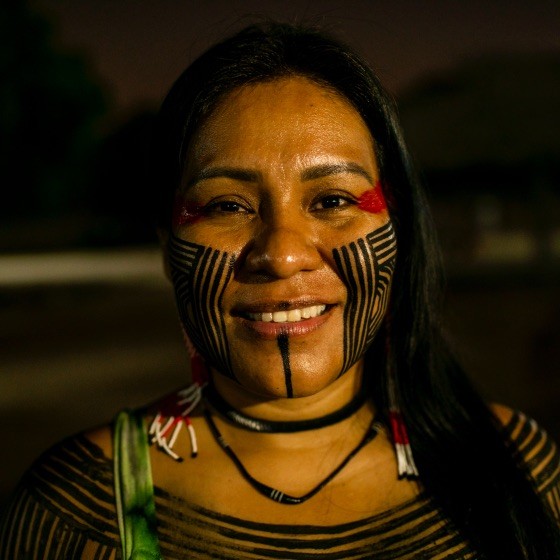
Maial Kaiapó
Member of the Kayapó indigenous community
-
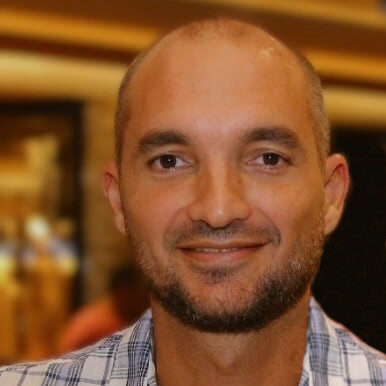
Igor Ferreira
GIS Director
The Kayapo Project
Brazil
-

Beto Borges
Director
Communities and Territorial Governance Initiative
Forest Trends
-
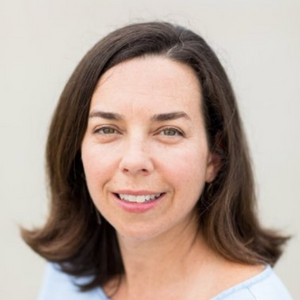
Maria DiGiano
Program Officer
Andes-Amazon Initiative
Gordon and Betty Moore Foundation
-
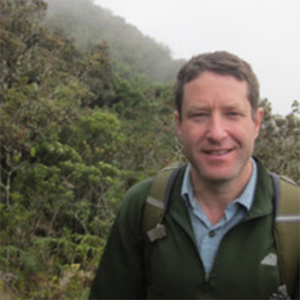
Matt Finer
Director of MAAP
Amazon Conservation
-
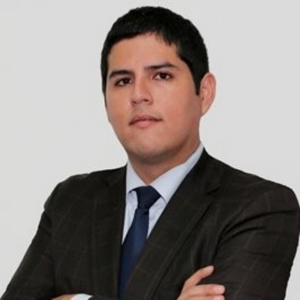
Humberto Balbuena
Environmental Policy and Governance Director
Conservación Amazónica - ACCA
Peru
-
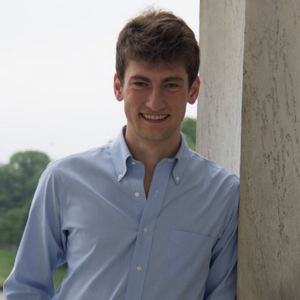
Michael Owen
Consultant
Indufor
-
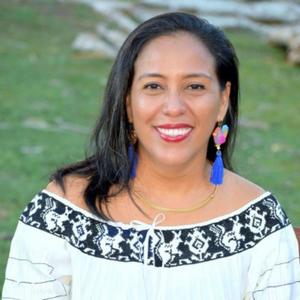
Anita Tzec
Senior Program Manager for Indigenous Peoples & Conservation
Global Program on Governance & Rights
IUCN
John Beavers
John Beavers is the Executive Director of Amazon Conservation and is responsible for its overall leadership and management. John has spent his career focused on conservation in Latin America ranging from on-the-ground conservation in the Maya Forest of Guatemala, Belize and Mexico to strengthening conservation organizations across Latin America. Prior to starting with Amazon Conservation in 2019, he spent seven years leading Audubon's international conservation efforts to protect key bird habitats and biodiversity in Latin America and the Caribbean. While there, he launched Audubon’s first international conservation strategy to guide Audubon's efforts outside of the United States, and developed and led innovative projects, including a $2.6 million bird-based-tourism partnership with the Inter-American Development Bank (IDB), and a regional climate plan that linked conservation organizations across 12 countries. Previously, he worked for seventeen years with The Nature Conservancy in Latin America, and lived in Guatemala where he led the Conservancy’s Guatemala and Central America Programs and helped lead national level conservation finance and policy actions, including a $24.4M debt-swap between the Guatemalan and US Governments. John has a Master’s degree from the University of Massachusetts, Amherst in Natural Resource Economics and an undergraduate degree in Political Science from Rutgers University.
Gilberto Mincaye Nenquimo
Meryl Cohen
Meryl leads the program strategy for the Alliance and supports the management of projects in Peru and Bolivia. She is in charge of developing grant proposals and managing relationships with foundations, governments, and other grant makers. Prior to starting with Amazon Conservation in 2019, Meryl developed and implemented rights-based conservation strategies across the Amazon and Mesoamerica with Forest Trends and the Rights and Resources Initiative. Prior to that, she supported Rapid Assessment Projects in Peru to quantify species diversity with Conservation International. Meryl has a Master’s degree in International Development and an undergraduate degree in Political Science from the University of Pittsburgh.
Julio Cusirichi Palacios
Leader of the Shipibo people, he was president of the indigenous community of El Pilar and leader of AIDESEP. He made a decisive contribution to raising awareness of the existence of indigenous peoples in voluntary isolation at all levels and to stop the intrusion into their now legally recognized territory, winning the Goldman Prize in 2007.
Beto Borges
Beto was born and raised in São Paulo, Brazil, where he obtained an AA degree in industrial chemistry from Escola Técnica Oswaldo Cruz and worked as an ecotourism guide in the Atlantic rainforest, while pursuing nature photography and rock climbing. Beto holds a Bachelor’s of Science in Conservation and Resources Studies from the University of California, Berkeley, and an MBA in Strategic Leadership from the Dominican University of California. Previously, he was Director of the Brazil Program of the Rainforest Action Network, promoting forest policies, community economic development and indigenous land demarcation in the Amazon region. He also worked for Aguirre International, evaluating environmental programs for AmeriCorp-USA and was the Manager of Sustainable Harvesting at Shaman Pharmaceuticals, developing ethnobotanical drugs from rainforest medicinal plants. As the Executive Director of Adopt-A-Watershed, he worked on watershed conservation through place-based learning methodologies. Beto also was a Program Officer with the Goldman Environmental Foundation, selecting finalists for the Goldman Environmental Prize and evaluating project proposals for funding. Beto has also consulted for Aveda Cosmetics, Conservation International, Instituto Terra, Occupational Knowledge International, and Wildlife Conservation Network, and others. He was co-chair of Grantmakers Without Borders and currently sits on the board of the Global Greengrants Fund, Earth Island Institute, and the Environmental Law Defenders Center. He is fluent in Portuguese, English, and Spanish.
Maria DiGiano
Maria works on the Gordon and Betty Moore Foundation's Andes-Amazon Initiative, where she is in charge of the management and implementation of the portfolio of grants in the Andean Region. She is an environmental anthropologist with over two decades of experience as a researcher and practitioner at the intersection of environmental conservation, sustainable development and human well-being.
Prior to joining the foundation, Maria worked as a scientist at Earth Innovation Institute (EII) where she led multi-stakeholder processes to set standards of engagement for indigenous peoples and local communities in subnational forest conservation and climate change mitigation policies across the tropics. She has also worked as a researcher with Stanford University’s Social Ecology Lab, where she explored human-environment interactions, and as a consultant to organizations such as the Nature Conservancy.
Maria has lived and worked throughout Latin America, serving as a Peace Corps volunteer in rural Paraguay, conducting field research in the Brazilian Amazon and the Maya Forest of Mexico, and collaborating across civil society groups, indigenous peoples’ organizations and governments. She is passionate about contributing to a healthy and just planet.
Maria DiGiano holds a M.S. and Ph.D. in interdisciplinary ecology with a concentration in anthropology from the University of Florida. She also has a B.A. in history from the University of North Carolina, Chapel Hill.
Matt Finer
For the past two decades, Matt has been dedicated to investigating threats to the Amazon. As part of this effort, he has been especially focused on advancing the dynamic field of real-time, satellite based threats monitoring from deforestation and fires. Following years of Amazon-based work, Matt came aboard Amazon Conservation in 2013, and in 2015 launched MAAP (Monitoring of the Andean Amazon Project) as the organization's dedicated real-time monitoring program. Under his leadership, MAAP has published over 130 high-impact public reports on critical topics including Amazon fires, illegal gold mining, illegal logging, expansion of the agricultural frontier, and road construction. He also works closely with colleagues in Amazonian countries to convert the technical findings into effective policy action. Matt received his Ph.D. from the School of Biological Sciences at Washington State University in 2003 and got his start as an undergrad in the Ecology and Evolution department at the University of Pittsburgh. Prior to joining Amazon Conservation, he was a Project Scientist for the Center for International Environmental Law (CIEL) Sustainable Loreto project and Staff Ecologist at Save America’s Forests.
Humberto Balbuena
Lawyer, with a Master's Degree in Regulation of Public Services and Infrastructure Management from the Universidad del Pacífico. He is a specialist in regulation of public services and administrative and environmental law with more than 10 years of professional experience in the preparation of legal reports, regulatory projects, and implementation guidelines.
Michael Owen
Michael is a Consultant at Indufor North America. His work centers on forest and natural resource governance and the use of data to develop custom-built tools to improve decision-making. Recently he supported Rainforest Foundation Norway in building a model of financial flows to tropical forest protection. He has previously worked with NASA, the World Food Programme, and the International Research Institute for Climate and Society on climate, disaster, and food security linkages. He holds a Masters in Climate and Society from the Department of Earth and Environmental Sciences, Columbia University, and a Bachelor’s in International Relations from American University. He speaks English and Spanish.
Anita Tzec
Maya Yucatec sociologist from Belize. Hold a Ph.D. in political sociology and worked as an indigenous rights activist in Latin America, Europe and Asia. Engaged in national, regional and international processes to advance the recognition of indigenous rights, particularly as they relate to lands, territories and resources, conservation and natural resource management, cultural heritage and indigenous women and children. Played a key role in the drafting of the American Declaration on the Rights of Indigenous Peoples (DADIN) and the last years of the UNDRIP drafting. Joined the Global Program on Governance and Rights at IUCN in 2019 as the new Program Manager, Indigenous Peoples and Conservation. In this capacity, plays a key role in globally engaging with IUCN Indigenous Peoples’ Organization members, supporting implementation of their self-determined strategy, and advancing indigenous rights and issues as part of IUCN’s work.
